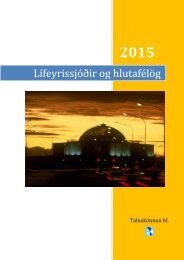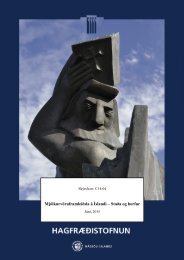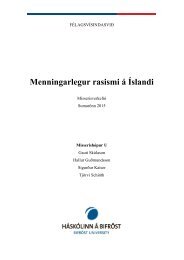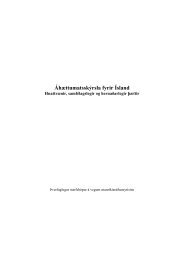- Page 1 and 2:
H U M A N R I G H T S W A T C H WOR
- Page 4:
Human Rights Watch defends the righ
- Page 8:
WORLD REPORT 2016 TABLE OF CONTENTS
- Page 12:
WORLD REPORT 2016 HUMAN RIGHTS WATC
- Page 16:
WORLD REPORT 2016 HUMAN RIGHTS WATC
- Page 20:
WORLD REPORT 2016 HUMAN RIGHTS WATC
- Page 24:
WORLD REPORT 2016 HUMAN RIGHTS WATC
- Page 28:
WORLD REPORT 2016 HUMAN RIGHTS WATC
- Page 32:
WORLD REPORT 2016 HUMAN RIGHTS WATC
- Page 36:
WORLD REPORT 2016 HUMAN RIGHTS WATC
- Page 40:
WORLD REPORT 2016 HUMAN RIGHTS WATC
- Page 44:
WORLD REPORT 2016 HUMAN RIGHTS WATC
- Page 48:
WORLD REPORT 2016 HUMAN RIGHTS WATC
- Page 52:
WORLD REPORT 2016 HUMAN RIGHTS WATC
- Page 56:
WORLD REPORT 2016 HUMAN RIGHTS WATC
- Page 60:
WORLD REPORT 2016 HUMAN RIGHTS WATC
- Page 64:
WORLD REPORT 2016 HUMAN RIGHTS WATC
- Page 68:
WORLD REPORT 2016 HUMAN RIGHTS WATC
- Page 72:
WORLD REPORT 2016 HUMAN RIGHTS WATC
- Page 76:
WORLD REPORT 2016 HUMAN RIGHTS WATC
- Page 80:
WORLD REPORT 2016 HUMAN RIGHTS WATC
- Page 84:
WORLD REPORT 2016 HUMAN RIGHTS WATC
- Page 88:
WORLD REPORT 2016 HUMAN RIGHTS WATC
- Page 92:
WORLD REPORT 2016 HUMAN RIGHTS WATC
- Page 96:
WORLD REPORT 2016 HUMAN RIGHTS WATC
- Page 100:
WORLD REPORT 2016 HUMAN RIGHTS WATC
- Page 104:
WORLD REPORT 2016 HUMAN RIGHTS WATC
- Page 108:
WORLD REPORT 2016 HUMAN RIGHTS WATC
- Page 112:
WORLD REPORT 2016 HUMAN RIGHTS WATC
- Page 116:
WORLD REPORT 2016 HUMAN RIGHTS WATC
- Page 120:
WORLD REPORT 2016 HUMAN RIGHTS WATC
- Page 124:
WORLD REPORT 2016 HUMAN RIGHTS WATC
- Page 128:
WORLD REPORT 2016 HUMAN RIGHTS WATC
- Page 132:
WORLD REPORT 2016 HUMAN RIGHTS WATC
- Page 136:
WORLD REPORT 2016 HUMAN RIGHTS WATC
- Page 140:
WORLD REPORT 2016 HUMAN RIGHTS WATC
- Page 144:
WORLD REPORT 2016 HUMAN RIGHTS WATC
- Page 148:
WORLD REPORT 2016 HUMAN RIGHTS WATC
- Page 152:
WORLD REPORT 2016 HUMAN RIGHTS WATC
- Page 156:
WORLD REPORT 2016 HUMAN RIGHTS WATC
- Page 160:
WORLD REPORT 2016 HUMAN RIGHTS WATC
- Page 164:
WORLD REPORT 2016 HUMAN RIGHTS WATC
- Page 168:
WORLD REPORT 2016 HUMAN RIGHTS WATC
- Page 172:
WORLD REPORT 2016 HUMAN RIGHTS WATC
- Page 176:
WORLD REPORT 2016 HUMAN RIGHTS WATC
- Page 180:
WORLD REPORT 2016 HUMAN RIGHTS WATC
- Page 184:
WORLD REPORT 2016 HUMAN RIGHTS WATC
- Page 188:
WORLD REPORT 2016 HUMAN RIGHTS WATC
- Page 192:
WORLD REPORT 2016 HUMAN RIGHTS WATC
- Page 196:
WORLD REPORT 2016 HUMAN RIGHTS WATC
- Page 200:
WORLD REPORT 2016 HUMAN RIGHTS WATC
- Page 204:
WORLD REPORT 2016 HUMAN RIGHTS WATC
- Page 208:
WORLD REPORT 2016 HUMAN RIGHTS WATC
- Page 212:
WORLD REPORT 2016 HUMAN RIGHTS WATC
- Page 216:
WORLD REPORT 2016 HUMAN RIGHTS WATC
- Page 220:
WORLD REPORT 2016 HUMAN RIGHTS WATC
- Page 224:
WORLD REPORT 2016 HUMAN RIGHTS WATC
- Page 228:
WORLD REPORT 2016 HUMAN RIGHTS WATC
- Page 232:
WORLD REPORT 2016 HUMAN RIGHTS WATC
- Page 236:
WORLD REPORT 2016 HUMAN RIGHTS WATC
- Page 240:
WORLD REPORT 2016 HUMAN RIGHTS WATC
- Page 244:
WORLD REPORT 2016 HUMAN RIGHTS WATC
- Page 248:
WORLD REPORT 2016 HUMAN RIGHTS WATC
- Page 252:
WORLD REPORT 2016 HUMAN RIGHTS WATC
- Page 256:
WORLD REPORT 2016 HUMAN RIGHTS WATC
- Page 260:
WORLD REPORT 2016 HUMAN RIGHTS WATC
- Page 264:
WORLD REPORT 2016 HUMAN RIGHTS WATC
- Page 268:
WORLD REPORT 2016 HUMAN RIGHTS WATC
- Page 272:
WORLD REPORT 2016 HUMAN RIGHTS WATC
- Page 276:
WORLD REPORT 2016 HUMAN RIGHTS WATC
- Page 280:
WORLD REPORT 2016 HUMAN RIGHTS WATC
- Page 284:
WORLD REPORT 2016 HUMAN RIGHTS WATC
- Page 288:
WORLD REPORT 2016 HUMAN RIGHTS WATC
- Page 292:
WORLD REPORT 2016 HUMAN RIGHTS WATC
- Page 296:
WORLD REPORT 2016 HUMAN RIGHTS WATC
- Page 300:
WORLD REPORT 2016 HUMAN RIGHTS WATC
- Page 304:
WORLD REPORT 2016 HUMAN RIGHTS WATC
- Page 308:
WORLD REPORT 2016 HUMAN RIGHTS WATC
- Page 312:
WORLD REPORT 2016 HUMAN RIGHTS WATC
- Page 316:
WORLD REPORT 2016 HUMAN RIGHTS WATC
- Page 320:
WORLD REPORT 2016 HUMAN RIGHTS WATC
- Page 324:
WORLD REPORT 2016 HUMAN RIGHTS WATC
- Page 328:
WORLD REPORT 2016 HUMAN RIGHTS WATC
- Page 332:
WORLD REPORT 2016 HUMAN RIGHTS WATC
- Page 336:
WORLD REPORT 2016 HUMAN RIGHTS WATC
- Page 340:
WORLD REPORT 2016 HUMAN RIGHTS WATC
- Page 344:
WORLD REPORT 2016 HUMAN RIGHTS WATC
- Page 348:
WORLD REPORT 2016 HUMAN RIGHTS WATC
- Page 352:
WORLD REPORT 2016 HUMAN RIGHTS WATC
- Page 356:
WORLD REPORT 2016 HUMAN RIGHTS WATC
- Page 360:
WORLD REPORT 2016 HUMAN RIGHTS WATC
- Page 364:
WORLD REPORT 2016 HUMAN RIGHTS WATC
- Page 368: WORLD REPORT 2016 HUMAN RIGHTS WATC
- Page 372: WORLD REPORT 2016 HUMAN RIGHTS WATC
- Page 376: WORLD REPORT 2016 HUMAN RIGHTS WATC
- Page 380: WORLD REPORT 2016 HUMAN RIGHTS WATC
- Page 384: WORLD REPORT 2016 HUMAN RIGHTS WATC
- Page 388: WORLD REPORT 2016 HUMAN RIGHTS WATC
- Page 392: WORLD REPORT 2016 HUMAN RIGHTS WATC
- Page 396: WORLD REPORT 2016 HUMAN RIGHTS WATC
- Page 400: WORLD REPORT 2016 HUMAN RIGHTS WATC
- Page 404: WORLD REPORT 2016 HUMAN RIGHTS WATC
- Page 408: WORLD REPORT 2016 HUMAN RIGHTS WATC
- Page 412: WORLD REPORT 2016 HUMAN RIGHTS WATC
- Page 416: WORLD REPORT 2016 HUMAN RIGHTS WATC
- Page 422: WORLD REPORT 2016 HUMAN RIGHTS WATC
- Page 426: WORLD REPORT 2016 HUMAN RIGHTS WATC
- Page 430: WORLD REPORT 2016 HUMAN RIGHTS WATC
- Page 434: WORLD REPORT 2016 HUMAN RIGHTS WATC
- Page 438: WORLD REPORT 2016 HUMAN RIGHTS WATC
- Page 442: WORLD REPORT 2016 HUMAN RIGHTS WATC
- Page 446: WORLD REPORT 2016 HUMAN RIGHTS WATC
- Page 450: WORLD REPORT 2016 HUMAN RIGHTS WATC
- Page 454: WORLD REPORT 2016 HUMAN RIGHTS WATC
- Page 458: WORLD REPORT 2016 HUMAN RIGHTS WATC
- Page 462: WORLD REPORT 2016 HUMAN RIGHTS WATC
- Page 466: WORLD REPORT 2016 HUMAN RIGHTS WATC
- Page 470:
WORLD REPORT 2016 HUMAN RIGHTS WATC
- Page 474:
WORLD REPORT 2016 HUMAN RIGHTS WATC
- Page 478:
WORLD REPORT 2016 HUMAN RIGHTS WATC
- Page 482:
WORLD REPORT 2016 HUMAN RIGHTS WATC
- Page 486:
WORLD REPORT 2016 HUMAN RIGHTS WATC
- Page 490:
WORLD REPORT 2016 HUMAN RIGHTS WATC
- Page 494:
WORLD REPORT 2016 HUMAN RIGHTS WATC
- Page 498:
WORLD REPORT 2016 HUMAN RIGHTS WATC
- Page 502:
WORLD REPORT 2016 HUMAN RIGHTS WATC
- Page 506:
WORLD REPORT 2016 HUMAN RIGHTS WATC
- Page 510:
WORLD REPORT 2016 HUMAN RIGHTS WATC
- Page 514:
WORLD REPORT 2016 HUMAN RIGHTS WATC
- Page 518:
WORLD REPORT 2016 HUMAN RIGHTS WATC
- Page 522:
WORLD REPORT 2016 HUMAN RIGHTS WATC
- Page 526:
WORLD REPORT 2016 HUMAN RIGHTS WATC
- Page 530:
WORLD REPORT 2016 HUMAN RIGHTS WATC
- Page 534:
WORLD REPORT 2016 HUMAN RIGHTS WATC
- Page 538:
WORLD REPORT 2016 HUMAN RIGHTS WATC
- Page 542:
WORLD REPORT 2016 HUMAN RIGHTS WATC
- Page 546:
WORLD REPORT 2016 HUMAN RIGHTS WATC
- Page 550:
WORLD REPORT 2016 HUMAN RIGHTS WATC
- Page 554:
WORLD REPORT 2016 HUMAN RIGHTS WATC
- Page 558:
WORLD REPORT 2016 HUMAN RIGHTS WATC
- Page 562:
WORLD REPORT 2016 HUMAN RIGHTS WATC
- Page 566:
WORLD REPORT 2016 HUMAN RIGHTS WATC
- Page 570:
WORLD REPORT 2016 HUMAN RIGHTS WATC
- Page 574:
WORLD REPORT 2016 HUMAN RIGHTS WATC
- Page 578:
WORLD REPORT 2016 HUMAN RIGHTS WATC
- Page 582:
WORLD REPORT 2016 HUMAN RIGHTS WATC
- Page 586:
WORLD REPORT 2016 HUMAN RIGHTS WATC
- Page 590:
WORLD REPORT 2016 HUMAN RIGHTS WATC
- Page 594:
WORLD REPORT 2016 HUMAN RIGHTS WATC
- Page 598:
WORLD REPORT 2016 HUMAN RIGHTS WATC
- Page 602:
WORLD REPORT 2016 HUMAN RIGHTS WATC
- Page 606:
WORLD REPORT 2016 HUMAN RIGHTS WATC
- Page 610:
WORLD REPORT 2016 HUMAN RIGHTS WATC
- Page 614:
WORLD REPORT 2016 HUMAN RIGHTS WATC
- Page 618:
WORLD REPORT 2016 HUMAN RIGHTS WATC
- Page 622:
WORLD REPORT 2016 HUMAN RIGHTS WATC
- Page 626:
WORLD REPORT 2016 HUMAN RIGHTS WATC
- Page 630:
WORLD REPORT 2016 HUMAN RIGHTS WATC
- Page 634:
WORLD REPORT 2016 HUMAN RIGHTS WATC
- Page 638:
WORLD REPORT 2016 HUMAN RIGHTS WATC
- Page 642:
WORLD REPORT 2016 HUMAN RIGHTS WATC
- Page 646:
WORLD REPORT 2016 HUMAN RIGHTS WATC
- Page 650:
WORLD REPORT 2016 HUMAN RIGHTS WATC
- Page 654:
WORLD REPORT 2016 HUMAN RIGHTS WATC
- Page 658:
WORLD REPORT 2016 HUMAN RIGHTS WATC
- Page 662:
WORLD REPORT 2016 HUMAN RIGHTS WATC
- Page 666:
WORLD REPORT 2016 HUMAN RIGHTS WATC
- Page 670:
WORLD REPORT 2016 HUMAN RIGHTS WATC
- Page 674:
H U M A N R I G H T S W A T C H WOR










